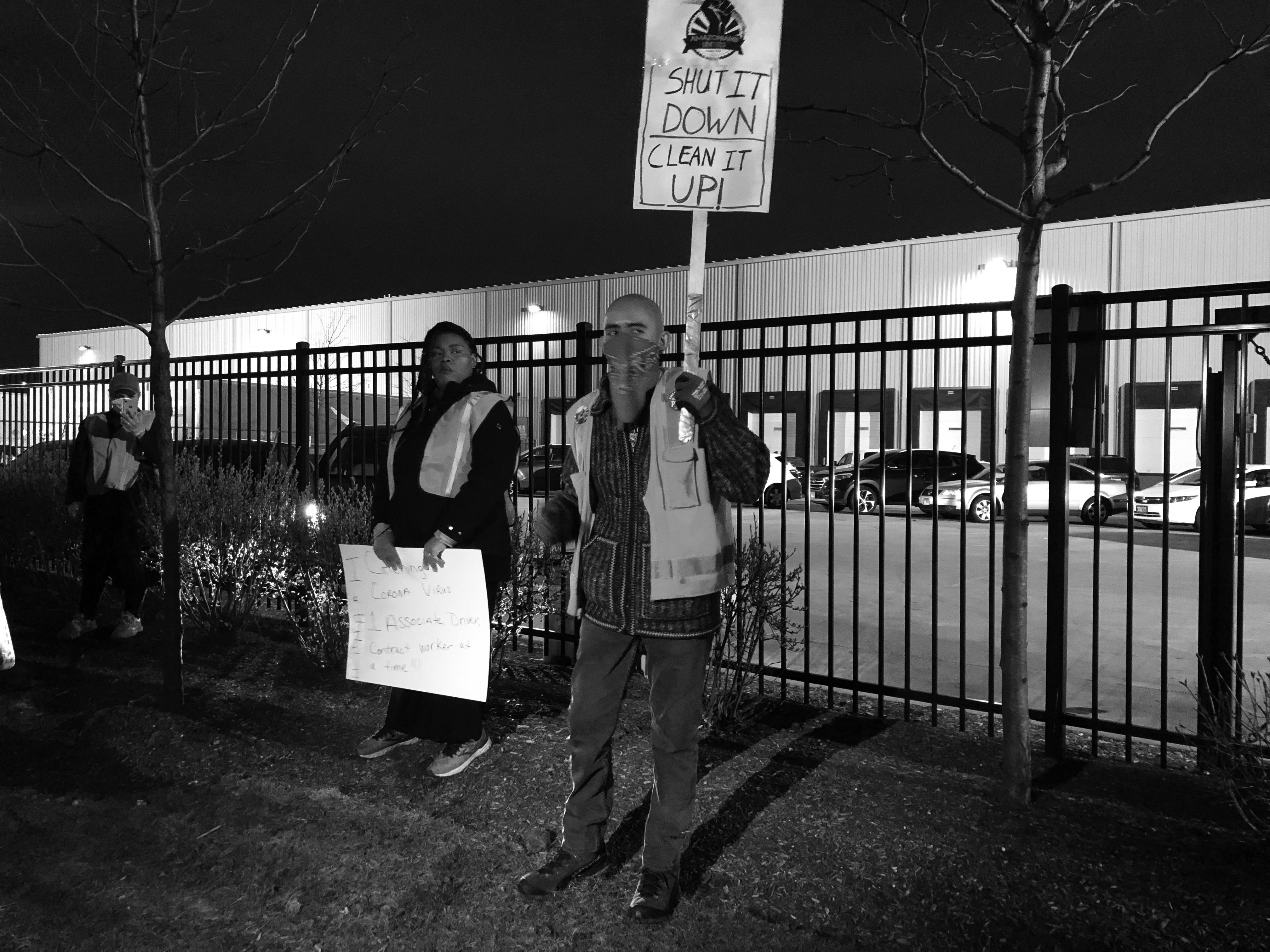
4 minute read
essential sacrifices
from April 15. 2020
Amazon workers strike due to multiple cases of COVID-19 in Chicago-area facilities
BY JACQUELINE SERRATO
Advertisement
Dozens of Chicago Amazon employees scheduled to work decided not to clock in the first week of April upon learning of at least four combined cases of COVID-19 in two distribution centers in Chicago and suburban Skokie.
Amazon associate Laccoma Scott had not shown up to the Chicago warehouse, at 2810 S. Western Avenue between the Little Village and Pilsen neighborhoods, since she received a robocall about the first case of COVID-19 on March 23.
“I didn’t want to get sick. My husband has diabetes and asthma, and I have two children with asthma,” she said. “My fouryear-old actually has a pre-existing condition where his lung collapsed, and he was on the ventilator for ten days. And I know that my employer is not going to be there for me if I were to go through that again.”
Before Governor J.B. Pritzker issued a stay-at-home order on March 20, Amazon allowed workers unpaid time off for the entire month of March. But workers feared getting penalized for taking days off in April, and decided to organize through DCH1 Amazonians United, a workers group that formed last year.
Scott joined her night shift coworkers on March 30 in what they called their first collective strike. “We are here because we want to work. This is not about Amazonians being lazy,” she said to her colleagues in the parking lot. “We want to work in a clean facility. We want to work where we’re gonna be safe and our kids and families are going to be safe. How can we be essential workers, but our lives aren’t essential?”
Workers from the morning shift also refused to go in the next day.
Employees said they were not notified about cases in the facility in a timely fashion and demanded the facility be closed for two weeks to ensure a thorough sanitization. They believe workers who show symptoms of COVID-19 should be granted quarantine pay to compensate for Amazon’s failure to implement protections during the pandemic.
In Skokie, warehouse workers were informed of a first case of COVID-19 by management on March 31, and some of them received robocalls during their work hours.
“Hey, your health and safety is most important,” the recording said. “In the next couple of days we will begin conducting a daily temperature check for everyone entering the building for the first time that day, at the start of their shift. If someone has a temperature of 100.4 F or above, we’ll require them to go home until you have been fever-free for seventy-two hours.”
Not all employees in every shift were properly notified. Tomas Uriostegui, a University of Chicago alum and Amazon associate in Skokie, said he talked to older Latina workers on the cleaning crew who told him they were unaware of the first COVID-19 case and had not been instructed to do anything differently. And it appeared that new hires were uninformed, too, when he asked for their support.
On April 3, employees in both distribution centers found out about second cases of COVID-19 in their respective facilities. Twenty miles apart, Scott and Uriostegui received the same text message from Amazon: “We have one additional confirmed cases [sic] of COVID-19. Your safety and health is our top priority. We continue to take measures to keep you safe, increasing social distancing to six feet, staggering shifts, extending breaks, and even more frequent cleanings... If you feel sick, stay home. You will not be penalized for any absences.”
That night, close to forty employees gathered in the parking lot at 2801 S. Western and refused to go in to work. They wore face masks and handkerchiefs, practicing social distancing while they chanted, “Clean it up! Shut it down!” “Our lives matter!” and “What do we want? Clean facility! When do we want it? Now!”
Amazon associate Christian Zamarron said he was unsuccessful in setting up a group meeting with the Chicago site lead, Domonic Wilkerson, who stood outside during the protest and talked to police. “On behalf of your site leader, anybody that’s not working has to go on the sidewalk,” a CPD officer said over the bullhorn. “You have the right to protest, but you have to be on the public way. If you are on duty, according to your site leader, you have to clock out and go protest on the sidewalk.”
Zamarron said he heard about four coronavirus cases at the site, though management only confirmed two cases in the Chicago facility as of the first week of April.
An Amazon spokesperson declined to comment on the number of COVID-19 cases in local distribution centers but said the company had adjusted attendance policies to support sick workers.
“We’re continuing to monitor the situation in our facilities, and we are taking proactive measures to protect employees and associates who have been in contact with anyone who has been diagnosed or becomes ill... We are also offering all hourly employees unlimited unpaid time off through the end of April,” he said in a statement to the Weekly.
Additionally, a March post on the Amazon blog reads, “Effective immediately, all Amazon employees diagnosed with COVID-19 or placed into quarantine will receive up to two-weeks of pay.”
David Rosario and other workers at Amazon’s Skokie warehouse came south to support the Chicago strike on April 3. “I’m here, I’m very upset, because our lives matter,” Rosario said. “I’m supposed to go back to work tomorrow, but I’m wearing a mask now, but they’re not providing us with masks.”








